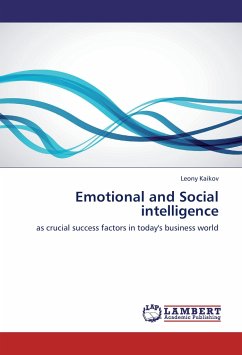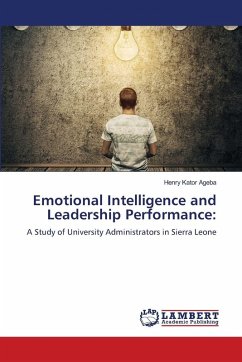
Love's Labours Redressed - Reframing Emotional Labour
Versandkostenfrei!
Versandfertig in 6-10 Tagen
28,99 €
inkl. MwSt.

PAYBACK Punkte
14 °P sammeln!
Emotional labour performance benefits from emotional support. To date, emotional labour research tends to identify "display rules" and "targets" as the main source of stress for professional emotional labourers eg. nurses or teachers. However, professional emotional labourers agree that a lack of support from their managers (and sometimes a lack of adequate training ie. in managing emotion), is worse. How can they be expected to GIVE emotional labour if they themselves are not receiving it? Emotional labour is an interactive process affected by the parties to the interchange - the labourer, th...
Emotional labour performance benefits from emotional support. To date, emotional labour research tends to identify "display rules" and "targets" as the main source of stress for professional emotional labourers eg. nurses or teachers. However, professional emotional labourers agree that a lack of support from their managers (and sometimes a lack of adequate training ie. in managing emotion), is worse. How can they be expected to GIVE emotional labour if they themselves are not receiving it? Emotional labour is an interactive process affected by the parties to the interchange - the labourer, the recipient (eg. client/customer/pupil/patient etc.) AND the manager or colleagues. Due to this, performance can become either a vicious or a virtuous cycle.












